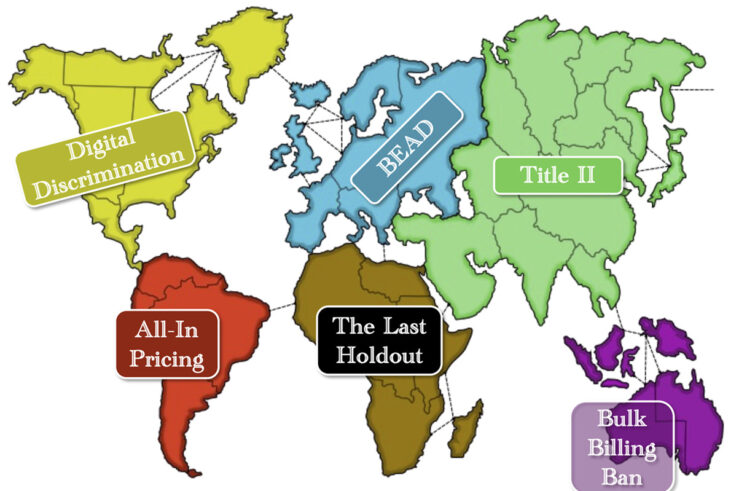In response to Josh’s gentle nudge, here are my remarks from Wednesday’s DOJ/FTC hearing on loyalty discounts. I focus entirely on bundled discounts (as opposed to single-product loyalty discounts, like volume or market-share discounts). Bundled discounts are discounts (or rebates) that are conditioned upon purchasing separate products from disparate product markets — e.g., “we’ll give you a 25% discount on all your A and B purchases if you buy 70% of your A requirements and 80% of your B requirements from us.”
In my remarks, I attempt to do three things:
(1) explain the primary competitive threat bundled discounts pose;
NUTSHELL: They can exclude equally efficient, but less diversified, rivals.
(2) summarize and critique the six leading proposals for evaluating the legality of bundled discounts;
NUTSHELL: They are (1) a rule of per se legality for above-cost bundled discounts (Josh’s colleague, Tim Muris, advocates that position); (2) a rule condemning bundled discounts that unjustifiably raise rivals’ costs (Harvard’s Einer Elhauge advocates that position); (3) the “rule” adopted in the Third Circuit’s (in)famous LePage’s decision; (4) a rule focusing on whether a complaining rival is equally efficient but excluded because of its narrower product line (the Ortho rule); (5) a rule asking whether a hypothetical equally efficient single-product rival would be excluded (the original Areeda-Hovenkamp rule); and (6) a rule asking whether the bundled discount amounts to a de facto tie-in and then applying a rule of reason analysis (the revised Areeda-Hovenkamp position).
(3) offer an alternative evaluative approach.
NUTSHELL: I propose a prima facie case and a rebuttal opportunity that, taken together, would identify bundled discounts that could exclude “competitive rivals” (those that had exhausted all competitive options and could match the discounter’s efficiency) and lead to consumer harm (because the market at issue is capable of monopolization).
The panel was tons of fun. I’ll post more once I’ve cleared a few things off my plate.




